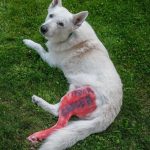Breaking the Rule for a Higher Truth: BBC Crew Rescues Trapped Penguins in Antarctica

In a rare and poignant turn of events, a BBC wildlife filmmaking team chose to break their golden “no-intervention” rule to perform an extraordinary rescue in Antarctica, affirming that sometimes, merely documenting a tragedy isn’t enough.

When the BBC crew arrived on the barren ice floe, they expected only to observe the stoic march of emperor penguins against the Antarctic wind. What they didn’t expect was to find dozens of birds trapped in a hidden crevice, their flippers worn raw from frantic scratching at walls of ice too steep to scale. Cameras rolled as the penguins’ desperate calls echoed over the frozen plain—footage no filmmaker wants but every conservationist fears.

At first, the crew hesitated. The “no-intervention” rule burned in their training: nature documentaries must capture life as it is, untouched by human hands. But as the penguins’ strength waned, something shifted. The director turned from her lens, her breath misting in the frigid air. “We can’t just leave them here,” she whispered. In that moment, the mission became clear: sometimes, filming a tragedy isn’t enough.

Working quickly, the team pried loose blocks of ice, fashioned ramps from spare equipment, and gently guided each exhausted bird back to open water. When the last penguin waddled free, the cameras stopped rolling—but the joy in every rescuer’s smile was more vivid than any broadcast could convey. In breaking a rule meant to preserve objectivity, they affirmed a higher truth: our place in nature isn’t as distant observers, but as guardians of its most vulnerable creatures.











